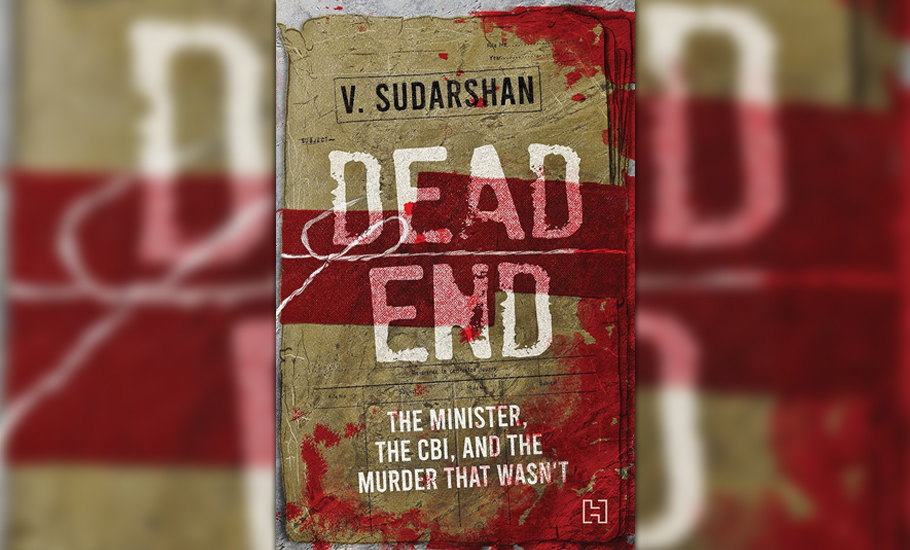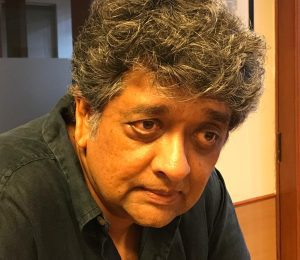
‘Dead End’ review: How a Karnataka minister got away with lawyer’s murder
V Sudarshan’s ‘Dead End’, the murder saga of a Kerala lawyer in which a minister was the key suspect, is an indictment of India, where brutal crimes attributed to powerful politicians often go unpunished

Journalist V Sudarshan’s racy writing style has shades of Erle Stanley Gardner. In his real-life murder saga, Dead End: The Minister, the CBI and the Murder That Wasn’t (Hachette India), Perry Mason — the criminal defense lawyer in Gardner’s detective fiction — is a hardworking CBI officer, who was later part of the team that investigated the assassination of former Prime Minister Rajiv Gandhi.

This book is based on a true incident. A simple, middle-class lawyer from Kerala, A Abdul Rasheed, was brutally murdered in Karnataka when he tried to secure justice for a man who had taken on an influential political leader. Despite warnings that he was courting serious danger, Rasheed went ahead with the case. He was mercilessly thrashed by policemen and then killed. His body was dumped near a railway track to make it look like a suicide. The 1987 horror triggered a strike by lawyers in Karnataka when Ramakrishna Hegde was the Chief Minister.
Complicity of policemen
The Central Bureau of Investigation (CBI) asked its Chennai-based Deputy Superintendent of Police K Ragothaman to crack the case after a colleague initially tasked with exposing the murderers claimed that Rasheed indeed killed himself. It did not take Ragothaman too long to conclude that the earlier investigation had been shoddy.
Book review: Two bureaucrats outline the evolution of India’s policies and programmes
Once Ragothaman began uncovering the evidence, there were tremors in Karnataka. The politician who apparently wanted Rasheed done away with was the Home Minister of the state. No wonder, the Karnataka police was least interested in getting to the bottom of it all. When Ragothaman cornered a senior police officer close to the Minister, the tremors turned into a powerful earthquake. Police personnel were found to be not only complicit in the murder of the lawyer, they were also charged with falsifying information and wiping out evidence. The Minister panicked and submitted his resignation to Hegde when he realised that the net was closing in on him.
This is when the system ganged up against justice. Some approvers dramatically turned hostile, fear writ large on their faces. One judge refused to hear the case, citing telephonic threats from someone claiming to be from the CBI. Pressure mounted on Ragothaman to keep away the politician’s name from the chargesheet, but he refused to buckle. He was even ready to quit the CBI, but would remain wedded to the truth.
A CBI special public prosecutor, who was as passionate about truth and justice, had his house vandalised. Once the Congress lost power nationally, giving way to a coalition government in New Delhi led by VP Singh, those linked to the murky murder in Janata Dal-ruled Karnataka heaved a sigh of relief.
Also read: How Kalachuvadu Kannan changed the face of Tamil book publishing
‘I know how to make bodies disappear’
Assuming he could bribe Ragothaman, the politician had the audacity to reach his house one day. There he made a startling admission: “Had I disposed of the body myself, there would have been no case. I know how to make bodies disappear, but the useless police fellows have spoilt the case.” Ragothaman was made of stronger stuff. He rejected the politician’s advances and told him to take back a briefcase he had brought stuffed with money or face immediate arrest.
Most unfortunately, the CBI officer — unlike the perennially successful Perry Mason — was unable to convince the court who the killers were. It was not his fault though. He remained sincere. But suddenly, the CBI bosses in Delhi did not seem as keen to pursue the killers.
When the main suspect is a powerful politician and the accused are police personnel, and when the locale happens to be India, even a cold and well-planned killing can end up without anyone being punished. The end of the gripping murder story is an indictment of India, a country which calls itself the world’s largest democracy but where, even today, brutal crimes attributed to powerful politicians often go unpunished.

